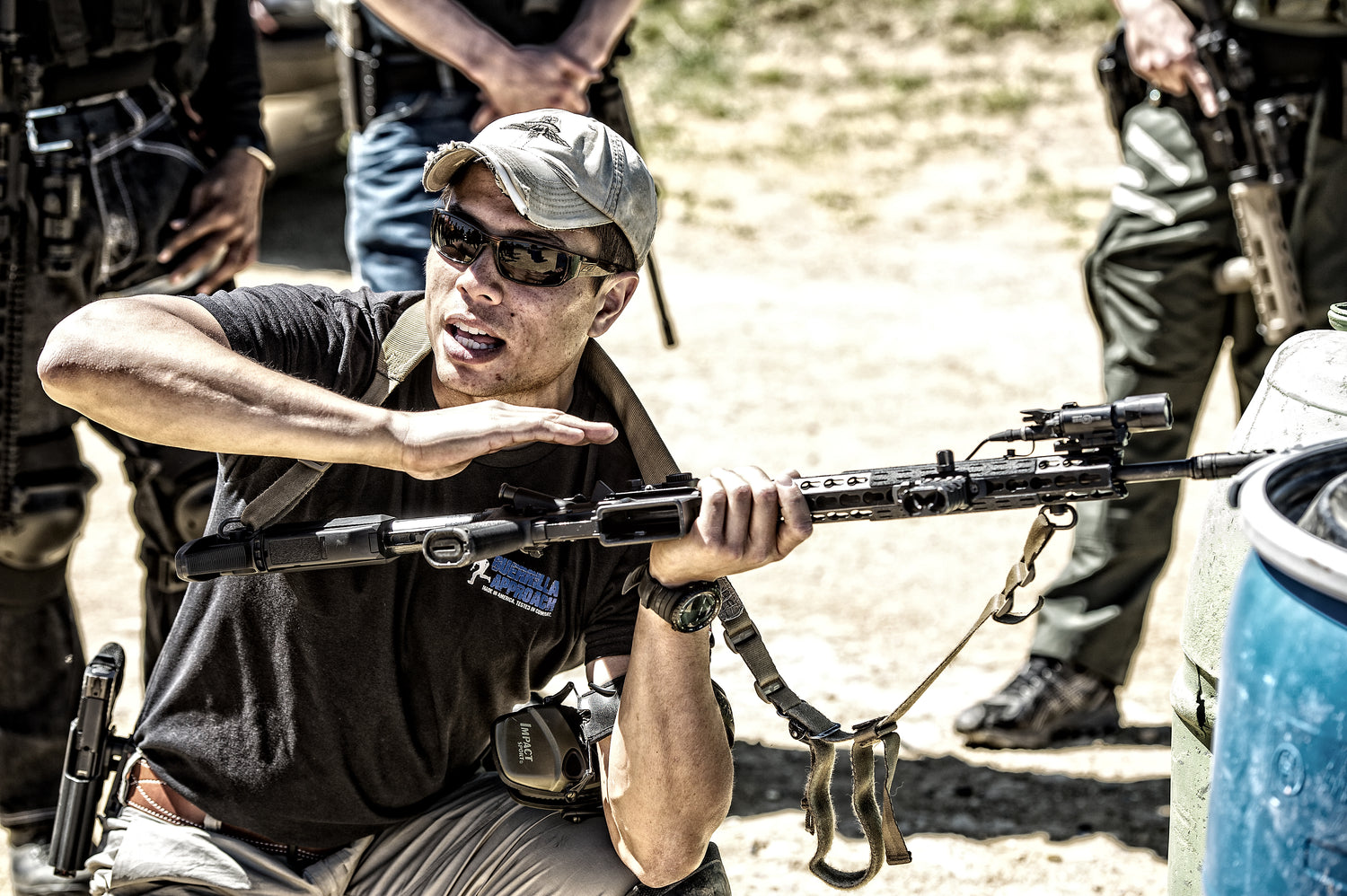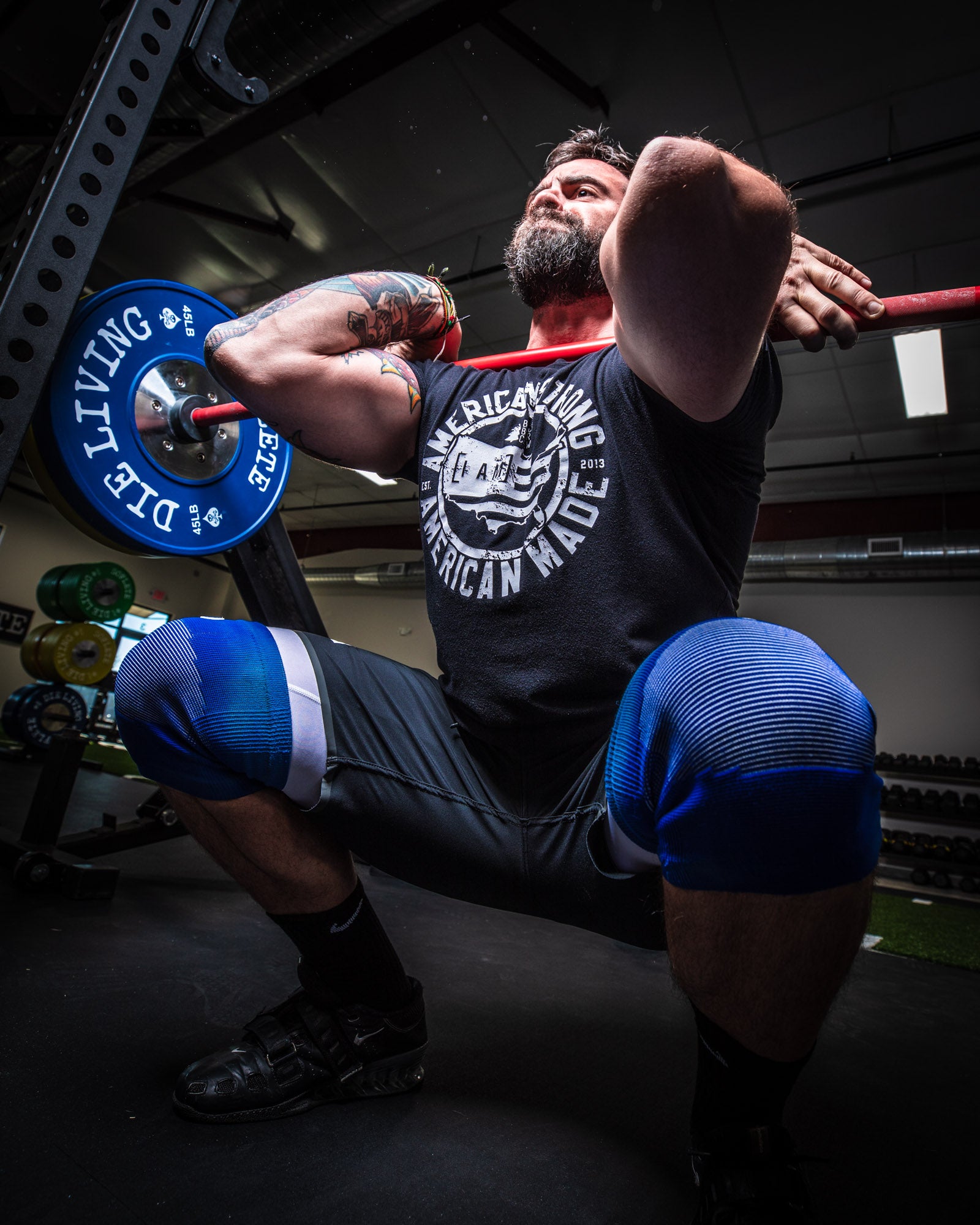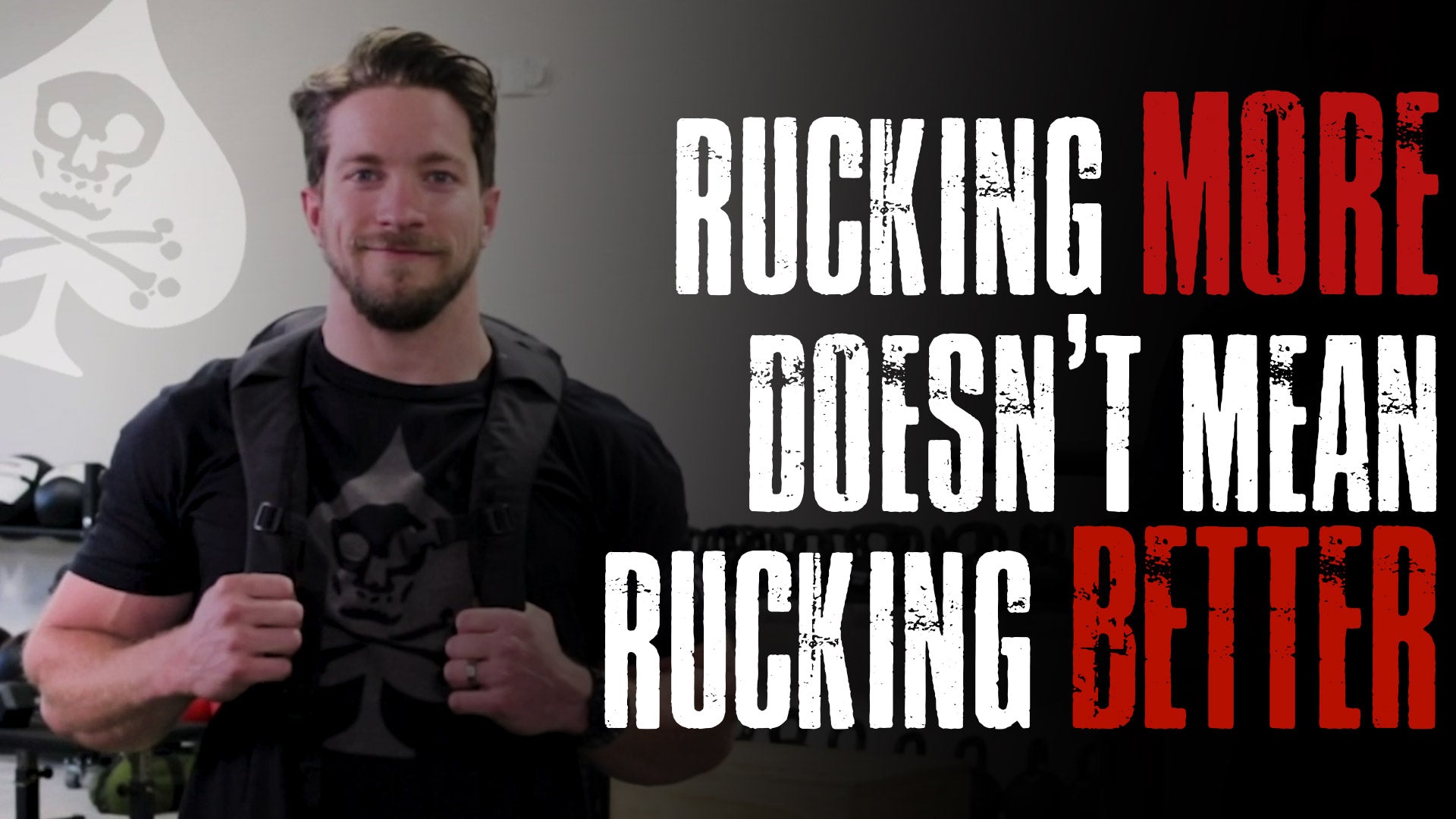
I almost failed sniper school. En route to the course’s final evaluated test, known as a "stalk lane", I sat in the back of a pickup truck surrounded by friends, but feeling entirely alone. For the rest of the group, spirits were high because the training day was scheduled to end at 1400 and we’d launch into a much anticipated four day weekend.
Having already passed the minimum number of stalks required, my peers were relaxed and shared some of the more comical moments of the past three days. For myself, however, the last stalk lane would determine whether I would remain in Special Forces sniper school (SOTIC), or sent back to my team a failure, and possibly kicked off the team after that.
Up until this point in the military, I’d been able to excel through most training events by simply “embracing the suck” or running faster than the guy next to me. I wasn’t necessarily the strongest in the group, but because of youth I recovered a lot quicker. I also had yet to experience lethal failure. So in controlled training environments, my blind confidence sometimes looked like real competence. In reality, I wasn’t aware of the risks I was narrowly avoiding or how near misses in training could be catastrophic on target.
During the stalk lanes, I was failing because I lacked appropriate fieldcraft experience. I was too aggressive with positioning or wouldn’t pay appropriate attention to the terrain in my background. In order to pass my final stalk, I couldn’t try harder, or run faster, I needed to reflect on why I was failing a technical skill. This demanded that I shift from embracing the suck to embracing self-doubt and harnessing it into necessary self-criticism.
There is solitude in failure. But how a man reacts to that loneliness—despite being surrounded by friends—determines whether he grows or continues to spiral downward. Before loading the trucks to our final stalk lane, some of my peers came over and gave me kind words.
“Keep your head up.”
“Don’t sweat it, you’ll be fine.”
“Stay positive.”
Although I appreciated their gestures, blind positivity and naive ambition would not ensure I advanced in the course. Arriving at our final stalk lane, one of the cadre pulled me aside and provided me with something more powerful than the combined cheerleading of the class. Instead, he mentored me.
Without insulting me or delivering hollow praise, he motivated me by effectively communicating technical advice through empathetic delivery. Walking me through my mistakes bruised my ego, but better prepared me for the final stalk lane.
Four hours later, I was cleaning my rifle and drinking a celebratory beer. I would continue to the next week of sniper school and eventually graduate at the end of the month.

Blind positivity can help you navigate through some of life’s toughest moments. But in the long run it can also cripple growth.
I grew up playing sports and have been an athlete my entire life. I’ve had the privilege of training with Division 1 collegiate strength and conditioning coaches. I’ve also experienced more traditional part-time coaches in high school or as a kid playing soccer. From the first time I learned to dribble a ball, to later in life when I applied athleticism to the tactical environment, a single constant has remained. I’ve never benefited from undeserved praise and hollow motivation.
When they see an athlete struggling, the novice coach makes the mistake of defaulting to cheerleading instead of instructing. However, an athlete that fails to perform a technical movement does not improve his performance because he hears hands clapping or recommendations to “stay motivated.”
No, I can’t do it.
Not because I’m not trying. Not because I lack determination. But because I need the movement broken down so that I understand why I’m failing.
We often confuse cheerleading and coaching because part of instructing is ensuring that you’re building an athlete’s confidence. In a lot of cases, hollow praise is not intended to tell an athlete he is doing well, but to instead tell him “I’’m not mad, I know you’re still learning.” This allows coaches to manage the emotions of their players so that they are able to stay focused in the performance environment.

As I mentioned before, blind motivation can be applied to certain situations to achieve success. I learned this during the first week of the Special Operations Preparation Course (SOPC). Week one of SOPC is designed to wear candidates down physically so that the cadre can tighten up the class before proceeding into the real instruction that prepares students for Special Forces Assessment and Selection.
For seven days, class sizes are cut in half as candidates decide that non-stop exercising isn’t compatible with their goals in the Army. Initially, 3AM surprise wakeup calls that force candidates to perform calisthenics in mud (or “gig pits”) is unpleasant. But those who make it through the first iterations learn how to keep themselves motivated when there is nothing they can do to change their environment.
At the end of the week, the cadre lead candidates through a grueling day long event dubbed “The SOPC Party.” For twelve hours, candidates are led on forced ruck marches, and routinely perform exercises until muscle failure.
When the cadre’s training agenda has “smoke’em” penned in for the entire day, there’s nothing a candidate can do to prove his worth other than survive. Half-way through the SOPC party our class was put in formation and we began performing an exercise in which we were forced hold our rucksacks over our head until a candidate quit the course. Whether he faked an injury or just couldn’t handle it anymore, a candidate quit and our class was one solider smaller.
We dropped our rucksacks and were instructed to perform pushups. By about the fifteenth repetition, a slow escalation of laughter was beginning to spread among the class. At first it was a muffled cadence, but within seconds it was a defiant outcry. Instead of our normal cadence calling for each repetition performed, the class began chanting “ZERO!”
The cadre continued calling cadence. But each time it was met with the defiant response of “ZERO!”
The motivation was intoxicating. The clothes on my back and my body might belong to the US Army, but my will power is my own. Through tight lips the cadre let out a few chuckles, but immediately returned to their stonewall demeanor. Although they wouldn’t applaud us in the moment, they later told us that they were proud of the class for coming together and learning to embrace the suck.

During inescapable situations that are designed to physically and mentally wear you down, hollow motivation and blind positivity are acceptable strategies. Whether its freezing in a gig pit, or pushing through the last few miles of an ultra marathon, keeping a positive mindset will keep the body going.
However, as the stakes increase or more technical skill is demanded, blind positivity will sabotage your performance. Worse, it can get you killed.
During the SOPC Party, I didn’t need to think critically. I just had to survive. In combat, surviving isn’t enough. To be an effective leader you must fine tune your ability to make critical decisions under extreme stress. This requires you to identify contingencies and possible second and third order of effects so that you can adapt ahead of your opposition.
In order to develop this type of decisiveness, leaders must undergo training in which they become aware of hazards and consequences. This forces individuals into lines of thinking that are negative and uncomfortable, but absolutely necessary because it develops awareness. More importantly, leaders must learn how to recover from repeated failure. Am I failing because I do not yet possess the required fundamental skills? Or do I possess those skills and I’m failing because my strategy is flawed?
Putting your head down and charging forward with blind hope can get you killed. In fact, the higher pain thresholds inherent in law enforcement and military personnel actually allows them to further dig themselves into these holes. We tend to think of this in the physical sense, but this can also relate to emotional death, specifically the type that is regularly demonstrated in the veteran community.

There is no pain like watching a friend leave the military only to witness his life slowly falling a part as a civilian. Although the coping strategies of not showing pain—emotional and physical—are acceptable in combat, they are however, completely incompatible with a healthy life in society. Development of emotional intelligence is vital for this transition.
I’ve seen a wide range of veterans refuse to acknowledge their emotional pain. Typically they suppress it through routine. Whether it be intense workouts, drinking, or defaulting to outrage on social media. But none of these are permanent solutions. Emotional healing comes from actually embracing emotion, not just putting your head down and charging head on towards the problem.
It is okay to cry if you feel sad.
It is okay to be mad if you feel angry.
It is okay to be discouraged if you fail.
It is okay to be uncomfortable if you feel guilt.
Prolonged wallowing in these emotions is toxic. But failing to acknowledge them at all ensures that they will slowly kill you.

Today everyone has a safe space on social media. If you’re feeling down you can retreat into your bubble of fake reality and everyone will tell you that everything is great. I support the communal aspects of social media, but I recognize that it can destroy an individual’s ability for self-reflection. Although it’s unnecessary to engage with the unending supply of negativity offered by the Internet, we must also caution against blindly charging forward with false positivity. This behavior compromises our ability to see the risks that are staring us right in the face. Worse, when we do experience real failure, we will have conditioned ourselves to look outward to place blame rather than embracing the discomfort that is reflecting inward.
Truly successful people do not get to where they are because when they experienced failure they decide to #grind. Instead, high performers learn how to avoid toxic behavior, but not at the expense of suppressing a feeling because it creates discomfort. If you develop an aversion to anything that doesn’t feel good, you start down a path in which you lose the ability to harness the power of failure for positive growth through self-reflection.
Growing from failure requires an individual to become comfortable with situations that cause both emotional and physical discomfort. More importantly, harnessing failure to mend strengths builds a resilience that prepares an individual for one of life and combat’s harshest realities: you can do everything right, but still lose, and how you learn from that type of loss determines the extent of your future successes.
#DIELIVING
Aaron Barruga is the founder at Guerrilla Approach, where he teaches tactical marksmanship and vehicle tactics. He’s a part of the GWOT generation of SOF instructors that are modernizing training methodology, challenging stale doctrine, and shaming range theatrics.
His courses are held nationwide and can be found at:
www.guerrillaapproach.com
facebook.com/guerrillaapproach
instagram.com/guerrilla_approach
[nutrition-ad]





Leave a comment
This site is protected by hCaptcha and the hCaptcha Privacy Policy and Terms of Service apply.